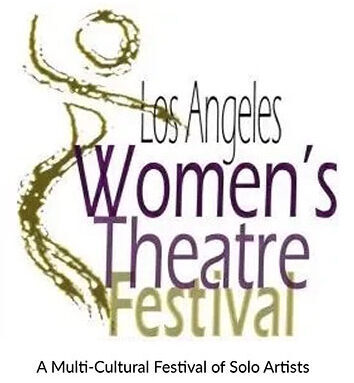Happy Pride Month from Los Angeles Women’s Theatre Festival!
- 0 comments
- by admin
Happy Pride Month from Los Angeles Women’s Theatre Festival!
As Pride Month nears its end, we here at the Los Angeles Women’s Theatre Festival want to reflect on the importance of LGBTQ+ representation in theatre as well as the community’s impact on theatre as a whole. The theatre has long been a sanctuary for artistic expression, a place where people of all identities can come together and feel safe to share their truths. This type of sanctuary has proven especially important for people of marginalized communities. LAWTF understands the importance of having a safe space to openly express ourselves, especially when we do not often have the opportunity to do so as oppressed communities. This desire for a community of like-minded and supportive individuals is what led our seven co-founders, Adilah Barnes, Miriam Reed, Helene McCardle, Joyce Guy, Judith Heineman, Nina Kaufman, and Phylise Smith, to create the Los Angeles Women’s Theatre Festival. We are living through a time where the rights and lives of LGBTQ+ individuals are constantly under attack, and it is increasingly important to recognize not only the plights this community faces, but also the many triumphs they have had.
It wasn’t so long ago that queer stories were not able to unabashedly take up space on the stage. Instead, queer actors and stories were forced to be disguised behind heterosexual plotlines, as openly queer stories faced intense criticism and homophobia. Even in the United Kingdom the Stage Licensing Act of 1737 required that all theatrical acts be approved and obtain a license through the Lord Chamberlain’s office from the Examiner of Plays. If the play did not meet the approved standards, often the show was cut and not allowed to be shown in a public setting. Expectedly, plays that mentioned or even alluded to homosexuality were cut. One such play was Cat on a Hot Tin Roof, written by the famous playwright Tennessee Williams.
In response to extensive criticism on covert queer stories hiding behind heterosexual narratives, a gay playwright, Mart Crowley took it upon himself to create a play more representative of the lives of gay men, entitled The Boys in the Band. While this work faced its own criticisms, it is undeniable that it was groundbreaking in its portrayal of the lives of a group of gay men, gathered together at a party one night. Set against the backdrop of the raging and overt homophobia of the 20th century, this play puts queer men at the center, no more hiding behind a straight facade. This show served as a catapult for other queer stories and queer storymakers to feel validated in their identities and strive to create art that fully represented them. Through the Stonewall riots and the start of the AIDS epidemic to the more contemporary, and continuous, fight for queer rights, the theatre has continually served as a space open to all, where people can come together and create beautiful art, feeling the support of those around them. And it must be clarified that “theatre” is not just confined to the Broadway stage. Queer theatre includes burlesque, cabaret, circus, drag shows, and much more. The art this community creates is too powerful to just be confined to one space.
At LAWTF, we are continually inspired by the pioneers who paved the way for the LGBTQ+ community to share their truths. Since its conception in 1993, the Los Angeles Women’s Theatre Festival has made itself a safe space for diverse storytellers with various stories. Some of our queer-identifying performers and partners include Lynne Jassem , a self-described “78-year-old tap dancing lesbian performance artist” who, when reflecting on time spent with LAWTF said, “LAWTF brought our shows to the world at large, ripe with our feelings of shame, pride, difference, all honestly portrayed in the safe spaces LAWTF offered to us. I will always love and be eternally grateful to Adilah Barnes.” Dr. Ada Cheng first worked with the festival as a performer in 2018, and from there participated with our organization in different capacities. As an Asian-American immigrant, she takes pride in the intersectionality of her identity. On her experience with LAWTF she says, “Throughout the years of working with LAWTF, I’ve never felt that I can only celebrate one part of me while having to minimize or downplay others. The welcoming atmosphere from the organization is absolute and holistic in every way.” Our 2024 Integrity Award Honoree Carolyn Ratteray said, “As a BIPOC queer performer it has been crucial to discover spaces that embrace, amplify and celebrate the breadth of our community’s wonderfully diverse narratives. In addition to LAWTF’s incredible history of supporting, producing and mentoring solo performers, I’m grateful to have benefitted from the workshops that have been offered by their members.”
At the Los Angeles Women’s Theatre Festival, we want to continue to honor those who set the stage–pun intended–for us and our performers. Theatre history is not complete without acknowledging the struggle for equal opportunity that marginalized communities faced and continue to face. It is vital–especially during Pride Month, but every day too–to recognize that queer history is a story that deserves telling and that it is more a part of everyone’s history than usually recognized.
A very happy Pride Month from the team at Los Angeles Women’s Theatre Festival!
















